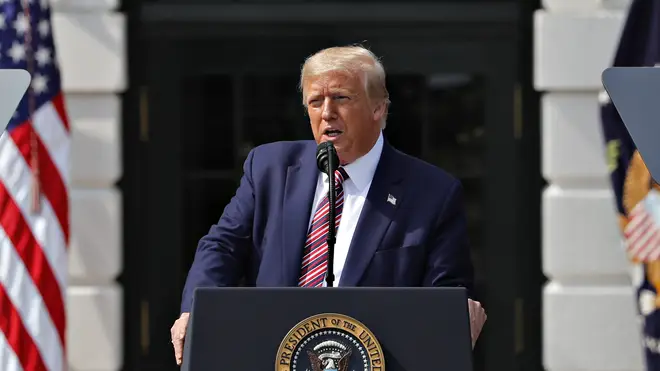
Clive Bull 1am - 4am
18 December 2020, 07:53

US federal authorities have said suspected Russian hackers have gained access to the National Nuclear Security Administration and Energy Department, in a long-undetected intrusion.
Increasing alarm has been raised over the hack into computer systems around the globe, and the US cybersecurity agency has warned of a "grave" risk to government and private networks from the attack which appears to have begun last March.
The Department of Energy - which manages the US stockpile of nuclear weapons - acknowledged it was among those that had been hacked.
The hack compromised federal agencies and "critical infrastructure" in a sophisticated attack that was hard to detect and will be difficult to undo, the Cybersecurity and Infrastructure Security Agency said in an unusual warning message.
The attack, if authorities can prove it was carried out by Russia as experts believe, creates a fresh foreign policy problem for US President Donald Trump in his final days in office.
Mr Trump, whose administration has been criticised for eliminating a White House cybersecurity adviser and downplaying Russian interference in the 2016 presidential election, has made no public statements about the breach.

President-elect Joe Biden, who inherits a thorny US-Russia relationship, spoke forcefully about the hack, declaring that he and Vice President-elect Kamala Harris "will make dealing with this breach a top priority from the moment we take office".
"We need to disrupt and deter our adversaries from undertaking significant cyberattacks in the first place," he said.
"We will do that by, among other things, imposing substantial costs on those responsible for such malicious attacks, including in coordination with our allies and partners.
"There's a lot we don't yet know, but what we do know is a matter of great concern."
Tech giant Microsoft, which has helped respond to the breach, revealed late on Thursday that it had identified more than 40 government agencies, think tanks, non-governmental organisations and IT companies infiltrated by the hackers.
It said four in five were in the United States - nearly half of them tech companies - with victims also in Canada, Mexico, Belgium, Spain, the United Kingdom, Israel and the United Arab Emirates.
"This is not 'espionage as usual,' even in the digital age. Instead, it represents an act of recklessness that created a serious technological vulnerability for the United States and the world," Microsoft said in a blog post.